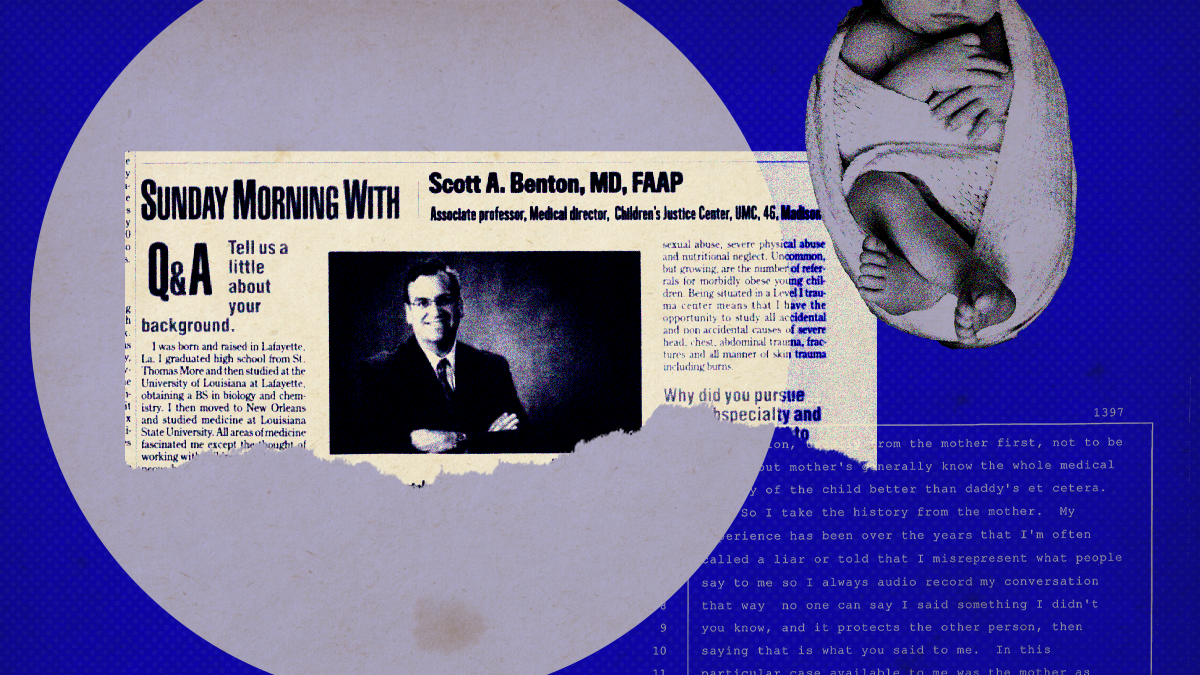Mississippi Today
Mississippi’s child abuse pediatrician works between medicine and the justice system. Can he be objective?
Mississippi’s child abuse pediatrician works between medicine and the justice system. Can he be objective?
This story is the first part in Mississippi Today’s “Shaky Science, Fractured Families” investigation about the state’s only child abuse pediatrician crossing the line from medicine into law enforcement and how his decisions can tear families apart. Read the full series here.
Dr. Scott Benton arrived in Mississippi in 2008 with a mandate to help ensure the University of Mississippi Medical Center stopped getting sued for failing to diagnose child abuse.
Dr. Dan Jones, then UMMC’s vice chancellor for health affairs, had been troubled by the lawsuits following the hospital’s oversights. Benton would later say that Jones wanted to know what the hospital could do to stop this from happening again.
The answer, in part, was Benton, whom Jones recruited to lead a new organization called the Children’s Justice Center. Based at Children’s of Mississippi in Jackson, the center’s mission is to prevent and identify child abuse and neglect.
Right after he arrived, Benton led a two-year effort to develop a surveillance protocol for the entire hospital. Under the protocol, any child admitted to the hospital with trauma – like cuts or broken bones – is screened for potential abuse.
The center was renamed the Children’s Safe Center and now has branches around the state where children can be examined for signs of abuse.
In the 14 years since Benton arrived in Mississippi, he has helped to change the state’s policies, procedures and resources around child abuse. But the success of his center is difficult to measure as the evaluations he conducts are private, and abuse and neglect cases in youth court are sealed, too.
Benton’s career parallels the growth of a unique medical specialty called child abuse pediatrics. Board-certified child abuse pediatricians must demonstrate knowledge of psychology, forensic medicine, neurology and much more. They say their combination of skills makes them uniquely able to determine when abuse has occurred.
Within children’s hospitals around the country, child abuse pediatricians can investigate caregivers they suspect of abuse, make referrals to child protective services, and testify in criminal proceedings. Their work can save children’s lives, and it may be particularly important in Mississippi, which had the country’s highest rate of child deaths due to abuse or neglect in 2021.
But parents who say they’ve been wrongly accused, some doctors in other specialties, and sometimes even child abuse pediatricians themselves say the specialists can be too quick to allege abuse and insufficiently careful in considering other explanations.
And in Mississippi, where he is the only board-certified child abuse pediatrician, Benton has played a particularly powerful role in determining when parents are investigated for child abuse, with limited oversight or consequences for making accusations that are unsubstantiated.
Mississippi Today has uncovered three instances in recent years where parents allege he got it wrong.In each case, there were other explanations or potential medical conditions for the injuries the children exhibited that were not fully vetted by Benton or his team before their caregivers were accused of child abuse.
Parents are often unclear they are being investigated for child abuse when interacting with Benton and his team, they say. Benton said he and his team introduced themselves as “pediatricians from the Children’s Safe Center.”
Benton, through communications officers at the University of Mississippi Medical Center, declined an interview request regarding this investigation from Mississippi Today. The communications officers responded to a limited number of a detailed list of questions and findings Mississippi Today shared with UMMC before publication and received statements from Benton but few direct responses or refutations.
“We walk a fine line between protecting abused children and protecting innocent parents,” Benton said in a statement. “I’m very cognizant of that. I emphasize that fact with staff, and I take that responsibility very seriously.”
In a separate statement, Dr. Mary Taylor, chair of the UMMC Department of Pediatrics, said Benton is “a respected member of our Medical Center staff” who has earned national certifications.
“As medical director of the Children’s Safe Center, Dr. Benton has the difficult role of evaluating the evidence in cases of suspected child abuse in any form and rendering a decision based on his training, many years of experience and deep knowledge of the medical literature. He and his team of trained child abuse specialists provide evidence-supported medical opinions to many governmental agencies that are tasked with ensuring the safety of children. Often times, these children cannot speak for themselves and Dr. Benton’s medical opinions are one part of a defined system of agencies that examine the totality of available evidence about suspected child abuse with the goal of protecting children from exposure to abusive environments.
“UMMC supports the critical work Dr. Benton does through the Children’s Safe Center and values the service he provides to the state as the only board-certified child abuse pediatrician.”
A pediatrician’s path evolves with a new medical specialty
Benton started his medical career in the 1990s, in his native Louisiana. His path in medicine evolved in tandem with the growth of a new medical specialty in child abuse.
During his second year of residency, he completed a clerkship in “pediatric forensic medicine” — what is now called child abuse pediatrics. He then took a job in pediatrics at the Louisiana State University medical school, which included training at the Center for Child Protection in San Diego, now called the Chadwick Center, and elsewhere.
Benton found himself at the center of a small but increasingly influential field. He became one of the charter members of the Ray E. Helfer Society, an organization of physicians who work on preventing and diagnosing child abuse.
“There’s only a few of us that do this,” he once explained in a deposition. “We recognized that this was building up a body of knowledge that was greater than that of just a general pediatrician… We started thinking that we could possibly have a subspecialty in the late 90s, early 2000s.”
Benton and colleagues applied to the American Board of Pediatrics for the designation.
They argued they offered something unique: an ability to draw together insights from a range of specialties in order to diagnose a crime.
“You have to first show the fund of knowledge, what the factual bases are, you have to compile a full literature, as in any other subspecialty,” Benton said in a 2017 deposition.
In 2009, the board offered a certification exam for the first time. Benton holds certificate number 20 in child abuse pediatrics. Today, there are 330 board-certified child abuse pediatricians across the United States.
Around the country, child abuse pediatricians report suspected abuse and neglect to child protective services, and then may provide evidence to help the state remove a child from his or her family’s custody. In some states, CPS also provides funding for their work.
Their credentials lend their determinations substantial weight in the eyes of CPS caseworkers, police, prosecutors and judges: A Marshall Project analysis found that reports of suspected abuse by medical professionals to child welfare agencies are 40% likelier to be substantiated than reports by non-medical professionals.
A ProPublica and NBC Investigation found thatonly about 5% of child welfare investigationsnationwide lead to determinations of physical or sexual abuse.
And around the country, Black children are disproportionately likely to be investigated. One2017 studyfound that half of all Black children in the US experience a CPS investigation by age 18, compared to less than a quarter of white children.
The three families featured in this series are white.
Benton has testified that his job requires him to “provide service to child protection, law enforcement and Mississippi prosecutors.” He started providing expert testimony soon after he began his medical career, first testifying in a case in September 1996.
Critics of this medical specialty — including defense attorneys and some doctors in other fields — argue that child abuse pediatricians are susceptible to bias because of their frequent and close interactions with law enforcement.
At one conference on shaken baby syndrome and abusive head trauma, a speaker presented defense expert testimony alongside a picture of Pinocchio. The event concluded with doctors and prosecutors singing a song mocking skeptics of the diagnosis to the tune of, “If I only had a brain.”
State public defender André de Gruy drew a parallel between child abuse pediatricians and medical examiners housed in the Department of Public Safety — both are scientists who say their work is objective, but who work closely with law enforcement and prosecutors.That may shape their interpretations.
“I think (Benton) is going to find abuse because he has a bias towards finding abuse, in my opinion,” de Gruy said. “In most of the cases, I suspect he finds abuse and there is abuse. But I think that there are the cases, the close calls, which is where the trouble comes in, where he’s going to find abuse but someone else will look at it and not.”
Child abuse pediatricians and many colleagues in other medical specialties and fields like law enforcement and social work see their work as essential to identifying and intervening in cases of abuse. They say they follow the evidence.
Dr. Christopher Greeley, who leads the child abuse pediatrics team at Texas Children’s Hospital, told NBC News that he and colleagues always work to rule out alternative explanations before making an accusation of abuse.
“We don’t say, ‘Eh, take the kid away,’ in a sort of flippant manner,” he told the news station.
Greeley, a past president of the Helfer Society who also chairs its public relations committee, did not respond to emails from Mississippi Today seeking an interview.
Mississippi’s only child abuse pediatrician builds a new surveillance system
When Benton moved to Mississippi in 2008, the state was under pressure to improve protections for abused children. A federal lawsuit in 2004 charged that the state was failing to prevent abuse and neglect of kids in the foster system. In response, the Legislature created the Children’s Justice Center in 2007, aiming to standardize and professionalize investigations of suspected abuse.
In an interview with the Clarion-Ledger in 2012, Benton explained that while working in New Orleans, he had developed one of the country’s “largest and (most) innovative child abuse programs” with the Audrey Hepburn Children At-Risk Evaluation Center. But in 2005, Hurricane Katrina destroyed most of his family’s material possessions and left them displaced from their home.
“It was during this time that I was recruited to be the medical director of the (UMMC) center and met with former Gov. Haley Barbour, now Gov. Phil Bryant, numerous legislators, then-University of Mississippi Medical Center Chancellor Dr. Dan Jones, and Pediatrics Chair Dr. Bev Evans,” he told the paper. “This solidified for me that Mississippi was serious about developing an academic forensic medical response for abused and neglected children.”
Benton’s UMMC colleagues welcomed his arrival. Dr. Christopher Blewett, a pediatric surgeon who now works in Missouri, told Mississippi Today that before Benton came to the hospital, the bulk of the work to investigate child abuse and provide evidence during criminal proceedings fell to doctors like him because they were the ones who would see and operate on children with physical trauma sustained from abuse.
Benton, who also lived next door to Blewett when they were both in Mississippi, was “a godsend,” Blewett said. His training equipped him to recognize patterns of injury that could point to abuse, and he largely took over the work of testifying in court.
Blewett said he completely trusts Benton, whom he describes as devoted to his work. He recalled phone calls at 10 p.m. to discuss whether to release a family from the hospital or keep them another day or two so Benton, who frequently travels to testify in court, could interview them in person.
“Obviously it takes a special person to do that work,” Blewett said. “This is just short of like an SVU detective in many cases. It can be pretty grim at times.”
Benton made a similar point during his Clarion-Ledger interview. Other specialists are reluctant “to get involved with the medico-legal evaluation of children,” he told the paper.
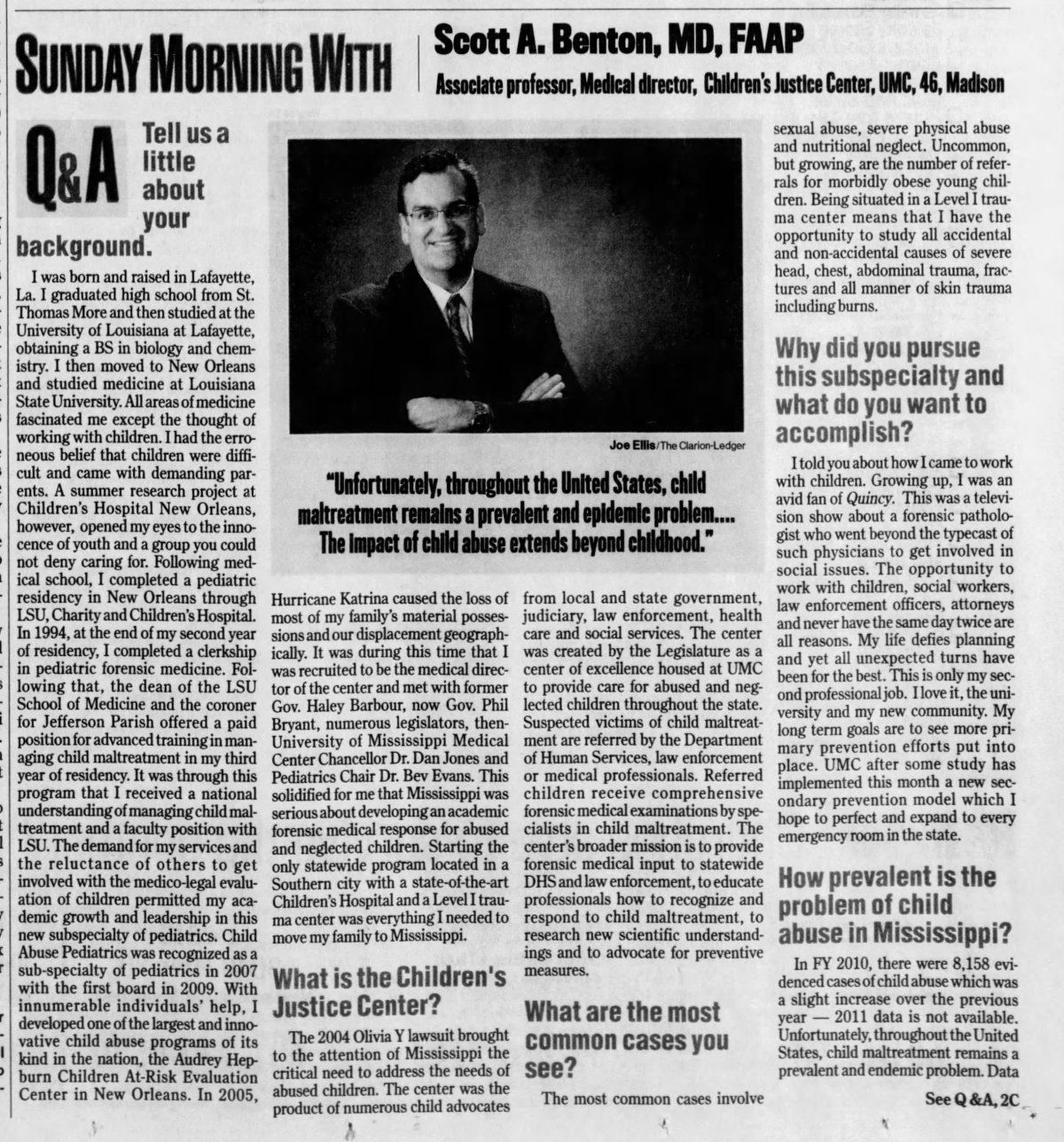
In Mississippi, rates of child maltreatment are higher than the national average. And in recent years, the number of child deaths reportedly caused by abuse and neglect in Mississippi has risen, from 15 deaths in 2007 to 38 in 2020 and 49 in 2021. That year — the most recent year for which such data is available — the state had the country’s highest rate of such deaths, at 7.07 per 100,000 children, compared to a national average of 2.46.
Today, Benton sees patients at the hospital suffering from severe trauma, supervises an outpatient sexual abuse clinic, and examines kids. Child Protective Services, police, lawyers, psychiatrists, pediatricians and emergency rooms refer children to the center.
Benton told Mississippi Today that the state’s child abuse hotline receives about 30,000 calls annually, and about a third of these are substantiated. The Safe Center saw 2,400 children last year, he said.
He also implemented a “high-risk surveillance system,” under which Benton’s team evaluates any child who comes to UMMC with certain injuries or symptoms. The triggers for such evaluation are wide-ranging, according to procedures obtained by Mississippi Today. They include any bone fractures, burns including “significant sunburns” and “all trauma warranting admission.”
Benton’s mandate was to ensure hospital staff missed no warning signs for abuse.
“The general teaching previous to that time was not adequate to keep an open mind about whether parents or caregivers could be abusers,” he told attorneys for a defendant in a fatal child abuse case during a deposition.
The stakes are high on either side, he said. While an incorrect accusation can have serious consequences for a parent, failing to detect abuse can put a child’s life at risk.
“I do think we try to get it right, and I’m not aware that there’s any overcalling going on,” he said. “Nationally, if you look at the statistics on the epidemiology, it’s always the opposite direction. We just take the person at hand and don’t go any further.”
Benton has emphasized that the protocol for reviewing cases he implemented provides protections for caregivers and a systematic exploration of potential causes of injury.
“Before I came here, anyone they thought who had injured the kid was kicked out of the hospital,” he told a group of Mississippi public defenders a decade ago in a recorded presentation Mississippi Today reviewed.
“That was part of their protocol. And I said, ‘Alright, who am I supposed to get the history from? Who am I supposed to figure out whether there’s a medical explanation for… some of these bleeding findings? So we quickly reversed that… We had to have multiple conferences to explain to them a concept you already understand: innocent until proven guilty … We’ve got several kids where we’ve made medical diagnoses where the nurses were like ‘Oh my God, I was ready to crucify this parent,’ and the kid turned out to have a (inaudible) aneurysm in their brain that was mimicking head trauma.”
In an email to Mississippi Today, Benton said the surveillance system does not give him total decision-making power in every case.
“The high-risk surveillance system is a review of other professionals (sic) work and is not an independent investigation by the children’s safe center,” he wrote. “However, if I feel by review that a case should be reported for state CPS investigation, I contact the medical provider involved in the case or the child’s primary care provider and discuss my concerns with them. It is up to them at that point whether they agree with my concerns. This interaction is documented in the child’s medical record.”
It is not clear whether Benton meant that the other medical providers in the case must make the decision to involve CPS. He and UMMC communications officials repeatedly declined Mississippi Today’s interview requests and responded directly to only a small number of questions sent via email.
When Mississippi Today asked for clarification on this particular point, UMMC did not respond.
The law gives doctors and law enforcement an incentive to allege abuse any time it appears possible. It protects people who make a good faith report of abuse or neglect from any liability if they get it wrong, while failure to report can lead to a fine and up to a year in prison.
But Benton has said keeping “an open mind” does not mean jumping to conclusions about whether abuse has occurred. The Clarion-Ledger asked him what adults should do if they suspect a child is being abused.
“My first advice would be to not overreact,” Benton said. “Listen to the child.”
He encouraged “passive listening,” in which a caregiver repeats back what a child says in a questioning tone.
“Then be silent and wait for further response,” he said.
Once you suspect abuse, call the state child abuse hotline.
He also pointed to social factors that can contribute to abuse, like caregivers being out of work, displaced, or otherwise stressed. And most physical abuse, he said, is related to “inadequate parenting skills coupled with frustration.” Benton added that stressful situations involving feeding, crying and misbehavior could cause “an otherwise sane caregiver to lose patience.”
As the doctor charged with accusing caregivers of child abuse, Benton is acquainted with angry denials and furious criticism.
“My experience has been over the years that I’m often called a liar or told that I misrepresent what people say to me, so I always audio record my conversations,” he said on the stand during a 2014 trial. “That way no one can say I said something I didn’t, you know, and it protects the other person.”
Two of the mothers featured in this series attempted to obtain the recordings of their conversations with Benton in the hospital but were unable. One was told she must have an attorney, and the other could not get in touch with an employee of the Children’s Safe Center, where the recordings are housed.
A controversial diagnosis
Child abuse pediatricians like Benton are trained to recognize signs of abusive head trauma, formerly known as shaken baby syndrome (SBS), and often provide expert testimony in trials. For decades, three findings were considered indicative of the syndrome: subdural bleeding, retinal bleeding and swelling of the brain.
Questions about abusive head trauma comprise 10% of the certifying exam for child abuse pediatricians, more than almost any other topic on the exam. (Child fatalities and musculoskeletal injuries comprise 4% and 8% of the exam, respectively.)
Thousands of people in the U.S. have been convicted of shaking a baby to death since the 1970s.
Yet the scientific bases of the diagnosis are increasingly coming under question. A 1987 study reviewed 48 cases of “shaken baby syndrome” in the Philadelphia area and found that of the 13 fatalities, all had signs of impact, too. Biomechanical studies, including one published in 2022, have also found that forceful shaking of an infant will cause injury to the neck before the brain, although neck injuries have not been considered diagnostic of the syndrome.
Retinal hemorrhage, once regarded as conclusive proof of the syndrome, has been seen in infants who died from causes like meningitis or an obstructed airway.
Researchers have also found that short falls can generate much more force than shaking, and a 2001 study that looked at children’s falls from playground equipment — but did not include infants — found that short falls could cause death, as well as retinal bleeding, and could be preceded by a lucid interval.
Critics of these studies say biomechanical models are not real infants. It’s impossible to test the theory on babies.
The dispute over the science plays out in courtrooms around the country. The Washington Post reported in 2015 that at least 16 people in the U.S. had overturned their convictions since 2001, as judges determined that new information created reasonable doubt as to their guilt.
Indeed, a 2018 “consensus statement” published in the journal Pediatric Radiology was written in response to what the authors described as “speculative theories that cannot be reconciled with generally accepted medical literature” now being advanced during trials. The statement explained the injuries could be caused by shaking alone, shaking and impact, or impact alone.
“There is no controversy concerning the medical validity of the existence of AHT, with multiple components including subdural hematoma, intracranial and spinal changes, complex retinal hemorrhages, and rib and other fractures that are inconsistent with the provided mechanism of trauma,” the statement said.
The idea that shaking alone could cause fatal injuries in infants was introduced in 1971 by British pediatric neurosurgeon Norman Guthkelch. He published a two-page paper in the British Medical Journal titled “Infantile Subdural Haematoma and its Relationship to Whiplash Injuries” that established the link between shaking and head injuries in infants.
With his research, Guthkelch was attempting to solve a problem he kept encountering in his practice. Small children showed up to the hospital where he worked with bleeding on the surface of their brains, but with no broken bones or bruises to indicate they had been abused. He reviewed 23 cases of alleged child abuse, with subdural hematoma in 13. In five of those cases, there was no external sign of injury, and Guthkelch theorized their injuries could have been caused by shaking.
In the years that followed, doctors were trained to strongly suspect abuse if children came in with subdural hematomas, brain swelling and bleeding in the retinas. A guide to investigating child abuse published by the Justice Department in the late 1990s called retinal hemorrhage in babies “for all practical purposes, conclusive evidence of shaken baby syndrome in the absence of a good explanation.”
Prosecutors have won convictions with no eyewitnesses to the alleged shaking and no theory as to why the defendant would shake the infant, with little evidence beyond a doctor’s diagnosis based on a supposedly definitive set of symptoms.
For prosecutors, shaken baby syndrome provides a tidy narrative: It is “a medical diagnosis for murder,” as Deborah Tuerkheimer, a law professor at Northwestern University and expert on shaken baby syndrome convictions put it in her 2009 article in the Washington University Law Review.
In 1996, Wisconsin day care provider Audrey Edmunds was convicted of murder in the death of a 7-month-old baby in her care. The prosecution’s argument hinged on what was then regarded as medical fact: The presence of retinal hemorrhage, subdural bleeding and brain swelling — plus the absence of another explanation for those findings — provided a powerful indication the baby had been shaken. And the timing of the baby’s decline purportedly proved Edmunds was responsible. Her defense did not challenge the science around shaken baby syndrome.
In 2008, however, Edmunds was granted a new trial. A judge determined that “a shift in mainstream medical opinion” on shaken baby syndrome meant a new jury could have reasonable doubt as to her guilt. The district attorney dropped the charges, and Edmunds was freed.
The outcome cast a spotlight on the controversy brewing over the diagnosis.
Guthketlch himself went on to express horror that prosecutors were using the diagnosis he had popularized to convict parents and caregivers when there was no other evidence of abuse. He spent the final years of his life reviewing controversial SBS cases and noted a high proportion of the children in them had a history of underlying illnesses or conditions that could explain their injuries, but that these issues were rarely considered in medical reports.
“While society is rightly shocked by any assault on its weakest members and demands retribution, there seem to have been instances in which both medical science and the law have gone too far in hypothesizing and criminalizing alleged acts of violence in which the only evidence has been the presence of the classic triad or even just one or two of its elements,” Gulthkelch wrote in a paper published in the Houston Journal of Health Law & Policy in 2012. “Often, there seems to have been inadequate inquiry into the possibility that the picture resulted from natural causes.”
In 2009, the American Association of Pediatrics issued a policy statement recommending doctors stop using the term “shaken baby syndrome” and instead use “abusive head trauma,” a terminology shift to describe the clinical findings instead of the mechanism of injury. The statement said injuries could be caused by shaking, impact, or some combination of both.
To critics, the name change presents an obvious problem: If the injuries can also be caused by impact, and defendants’ accounts of what happened describe an accidental impact, how can doctors be certain the injuries were caused by abuse?
Child abuse pediatricians say the science of abusive head trauma is sound, and that when a child has a specific set of symptoms, a different diagnosis is unlikely. They argue that critics of the diagnosis are putting kids at risk.
“The controversy exists among just a few individuals predominantly traveling on the defense circuit, some of whom are making $600,000 a year providing testimony that is factually scientifically counterintuitive, counter science,” Benton said in one sentencing hearing in 2018, “so I wouldn’t call that controversy when the people — I mean, you’re making it as if it’s balanced. Is it controversy? Yes, we’re very upset when somebody misuses science in the furtherance of a child who in our estimation has been abused.”
Reading a newspaper, finding a homicide
When Benton arrived in Mississippi, he understood the Children’s Justice Center had a decade of guaranteed funding thanks to the state’s $100 million settlement with WorldCom Inc., a telecommunications company that collapsed in a multibillion-dollar fraud scandal. It turned out that was a drastic overestimate. Instead, he had a few years’ worth of funding, and he had to look for other revenue streams.
That was how the case of a man named Jeffrey Havard first came across his desk. Havard was convicted of capital murder in the death of his girlfriend’s 6-month-old daughter in 2002, and sentenced to death. The prosecution’s theory was that Havard had sexually assaulted the baby and shaken her to death.
The director of the center read a story in the Clarion Ledger about Havard’s case by longtime investigative reporter Jerry Mitchell. The state Supreme Court had just rejected an appeal from Havard, but Mitchell had interviewed a pathologist who reviewed medical records and concluded there was no evidence of sexual assault or of homicide, and that the baby’s injuries were consistent with Havard’s claim that he had dropped her.
The center’s director thought Benton could potentially apply his expertise to the case. Helping to right an injustice might boost name recognition and funding for the center.
But Benton didn’t see an injustice.
“As I read the facts as put forth in the above sources,” he wrote to Mitchell on March 15, 2012, referring to the newspaper article and the state Supreme Court decision upholding Havard’s conviction, “I believe they support a homicide.”
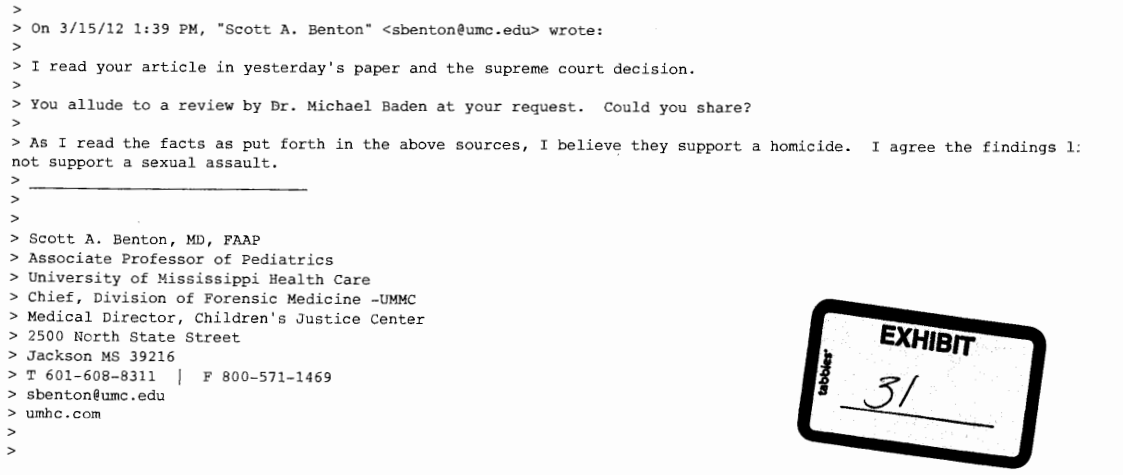
Mississippi Today health editor Kate Royals contributed to this report.
Editor’s note: Kate Royals, Mississippi Today’s community health editor since January 2022, worked as a writer/editor for UMMC’s Office of Communications from November 2018 through August 2020, writing press releases and features about the medical center’s schools of dentistry and nursing.
This article first appeared on Mississippi Today and is republished here under a Creative Commons license.
Mississippi Today
Lackey family members show value of education
As children during the 1950s, Hilliard Lackey and Lillian Troupe often had to skip school to pick cotton with their sharecropping parents.
They grew up together in the small north Mississippi town of Marks, both raised by devoutly Christian families.
Marks has struggled with poverty for generations, and problems were compounded by Mississippi’s history of underfunding public education for Black students. Schools remained segregated, and both said it was common for Black children around them to drop out or miss school so they could work in the fields.
“That was the life we knew, the life we inherited,” Hilliard Lackey said.
Hilliard and Lillian met as classmates in sixth grade, started dating in high school and married in 1966. Despite the challenges of the time, their parents and church leaders encouraged them to be ambitious and succeed.
Today, several members of the Lackey family have doctoral degrees: Hilliard and Lillian Lackey; their daughters, Tahirih Lackey and Dr. Katrina Davis; the couple’s daughter-in-law, Tracy Knight Lackey; and his stepbrother and sister-in-law, Dr. Robert Long and Vanessa Rogers Long.
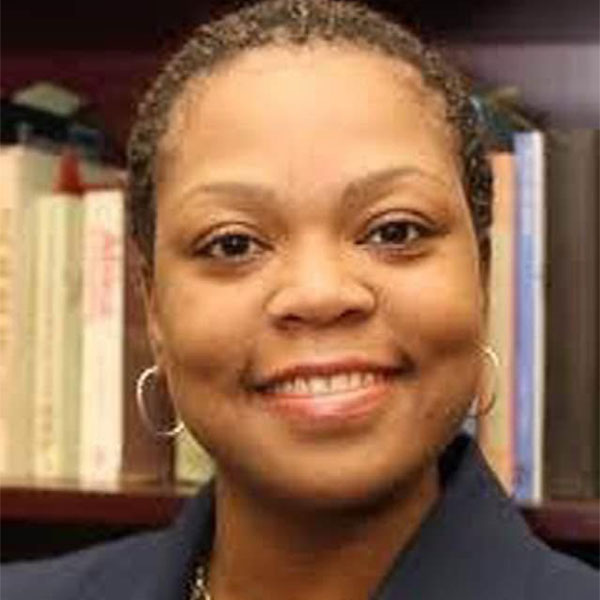
Pew Research Center found that as of 2023, about 26% of all Black Americans 25 and older have a bachelor’s degree or higher, and 11% have advanced degrees. In Mississippi, 18.5% of Black residents have a bachelor’s degree or higher.
Hilliard Lackey is a longtime professor of urban higher education and lifelong learning at Jackson State University. He attended what was then called Jackson State College, earning his bachelor’s in history and political science, pre-law track, in 1965. (It became Jackson State University in 1974.)
Hilliard Lackey – who later earned a master’s degree in educational administration, an education specialist degree in the same topic, and a doctorate in higher education administration – was the first in his family to go to college.
“I left home and came to a whole new city, a whole new environment. It’s a college,” he said, looking back on the experience. “And I was astounded, and scared, and frightened and bewildered.”
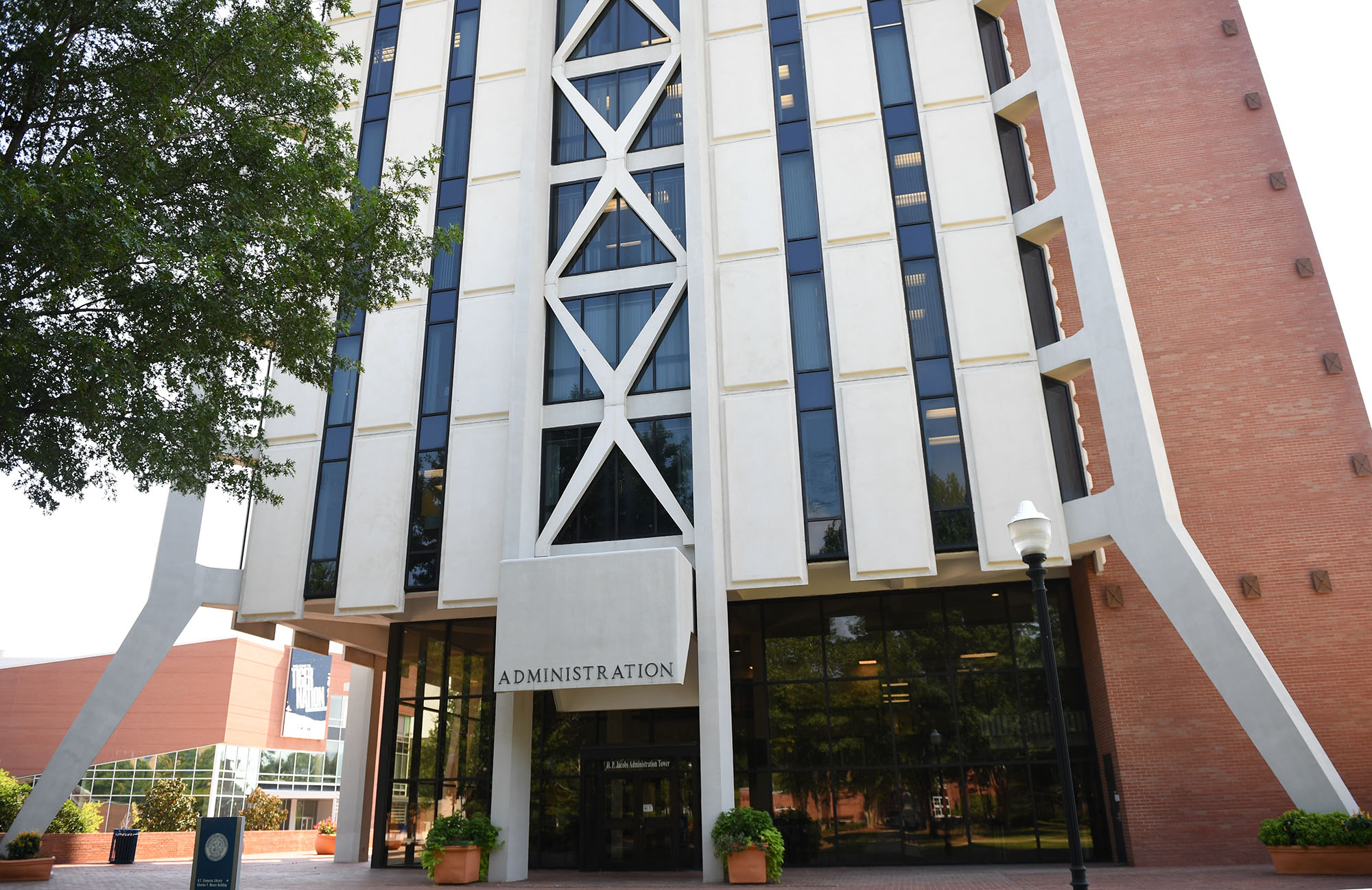
Lillian, then still named Troupe, attended Coahoma Community College before transferring to what was then called Alcorn Agricultural and Mechanical College – since 1974, Alcorn State University. She graduated from Alcorn with a bachelor’s in business education in 1966 and earned a masters in education administration from Jackson State in 1974.
She was still living and working in Marks during community college.
“I went to Coahoma … rode the school bus, came home, got out of my clothes, went to the field, picked cotton,” she said. “And so I picked my way out of the cotton field to Alcorn.”

In June, West Coast Bible College & Seminary awarded Lillian Lackey an honorary doctorate for her years of community service.
Two of Hilliard and Lillian Lackey’s four children have doctorates. Davis has a medical degree and is a urogynecologist. Tahirih Lackey has a doctorate in civil environmental engineering and is a research hydraulic engineer at the U.S. Army Corps of Engineers Research and Development Center.
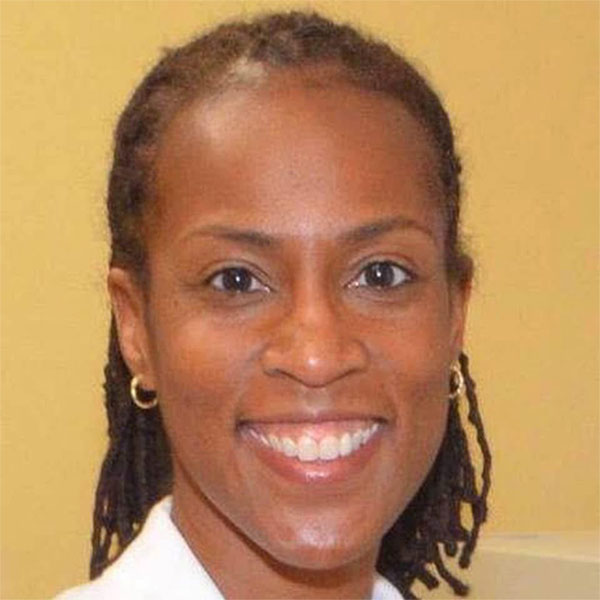
Both sisters say their parents’ emphasis on education and success and their religious faith influenced their career paths.
Davis recounted that every Sunday, each member of the family stood in front of the fireplace and discussed what they’d done that week to achieve their goals. She and her siblings attended a variety of academic and athletic summer programs before and during college.
Hilliard and Lillian Lackey converted from Christianity to the Baha’i faith as adults. They raised their children “essentially as Christian Baha’is,” according to Hilliard Lackey, and let them choose what religion to follow when they were 15 years old.
“They pretty much told us, ‘Whatever you want to be, you can be, and we’ll be there to help you,’” Davis said.
“I would recognize that my parents, they were always helping other people. Like, throughout my whole life they demonstrated those concepts,” Tahirih Lackey said.
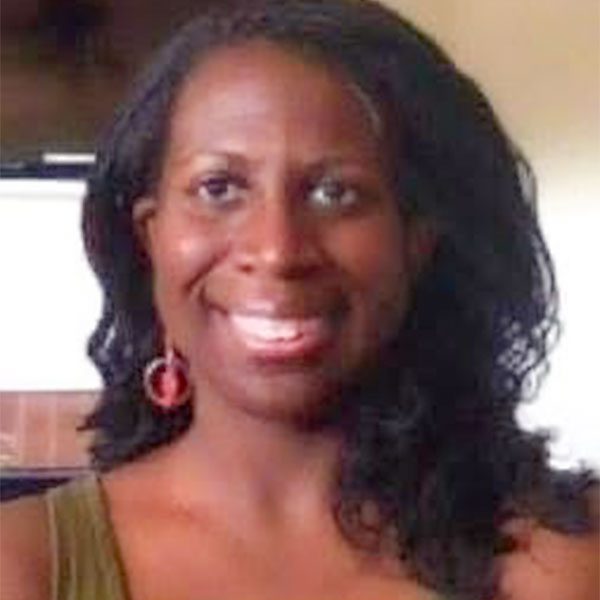
“None of us thought we had any barriers,” Davis said. “If there were barriers, they were from our own mental blocks.”
Hilliard Lackey’s stepbrother, Dr. Robert Long, is a dentist in Clarksdale. Long also credits his upbringing for his success, saying his parents raised him and his siblings with a strong work ethic and Christian values.
“They instilled in us that nobody is going to give you anything, nobody is obligated to give you anything,” Long said.
Long grew up in a small rural town in Quitman County, 15 miles from Marks. He had a similar upbringing to Hilliard Lackey. His parents encouraged him to get an education.
He attended Earlham College, where he majored in biology and found a mentor who inspired him to become a dentist.
He described his undergraduate experience as a “culture shock” and an “academic shock.” He chose to persevere through the challenges.
“I knew I could go home,” he said, “but I didn’t want to go home.”
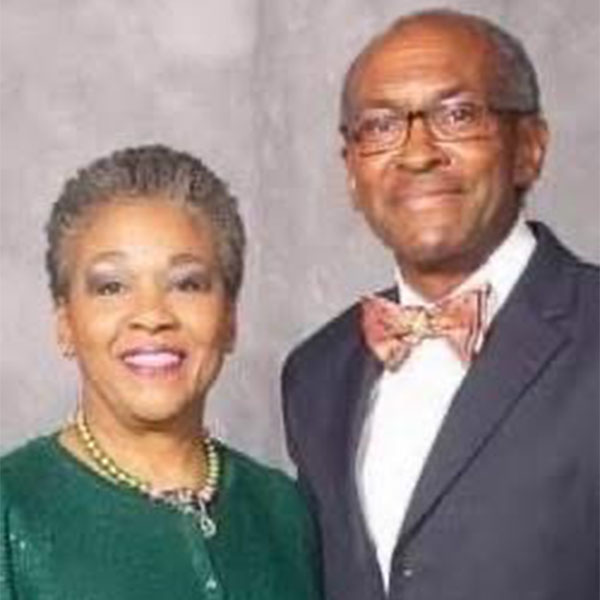
Vanessa Rogers Long grew up in a middle-class family in the small community of Memphis, Mississippi, and, like most of her family, has lived a life dedicated to service.
She was the first Black hospital administrator for the Mississippi Department of Corrections. She founded Mississippi Delta Connection, which is part of Links Inc. She also mentors teens on service and leadership skills. She has received several honors, including having her sorority, Alpha Kappa Alpha, dedicate a bench to her at her alma mater, LeMoyne-Owen College.
“Service is what I do,” she said.
Hilliard and Lillian Lackey are also deeply involved in community service, including their “Lackey Scholars” program inspired by a former teacher. Hillard Lackey estimates they’ve helped more than 500 high school students from Quitman County attend and graduate from Jackson State since 1967. In addition, they mentor dozens of students from Quitman County’s Madison Shannon Palmer High School to act as role models for their peers and the community.
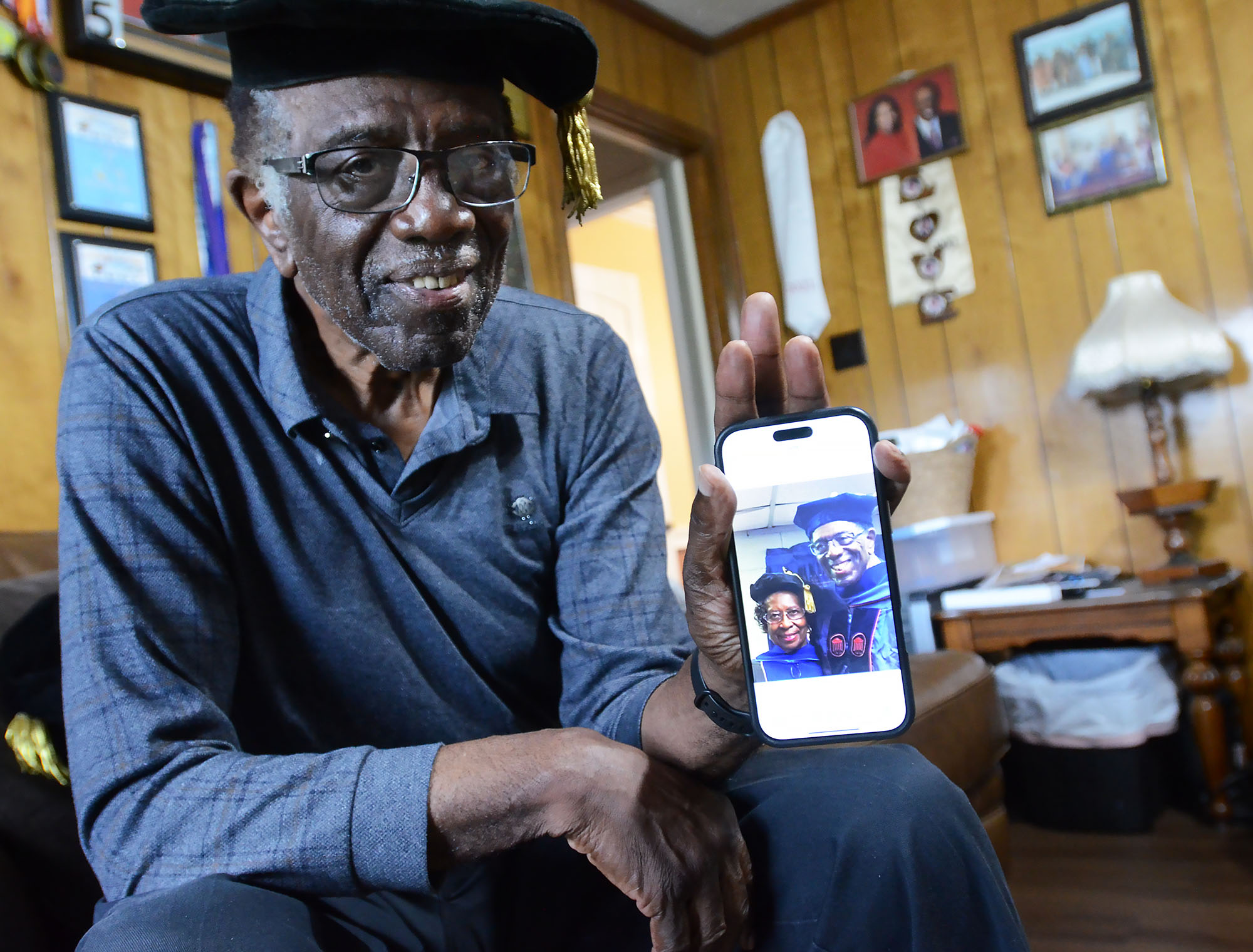
“That’s just been our thing, it’s always been,” Lillian Lackey said. “To help somebody, if they were hungry, if they were cold, if they were whatever.”
When asked what he would tell first-generation college students, Hilliard Lackey said: “Education is an equalizer. It gives an advantage to the disadvantaged. It levels the legacy playing field.”
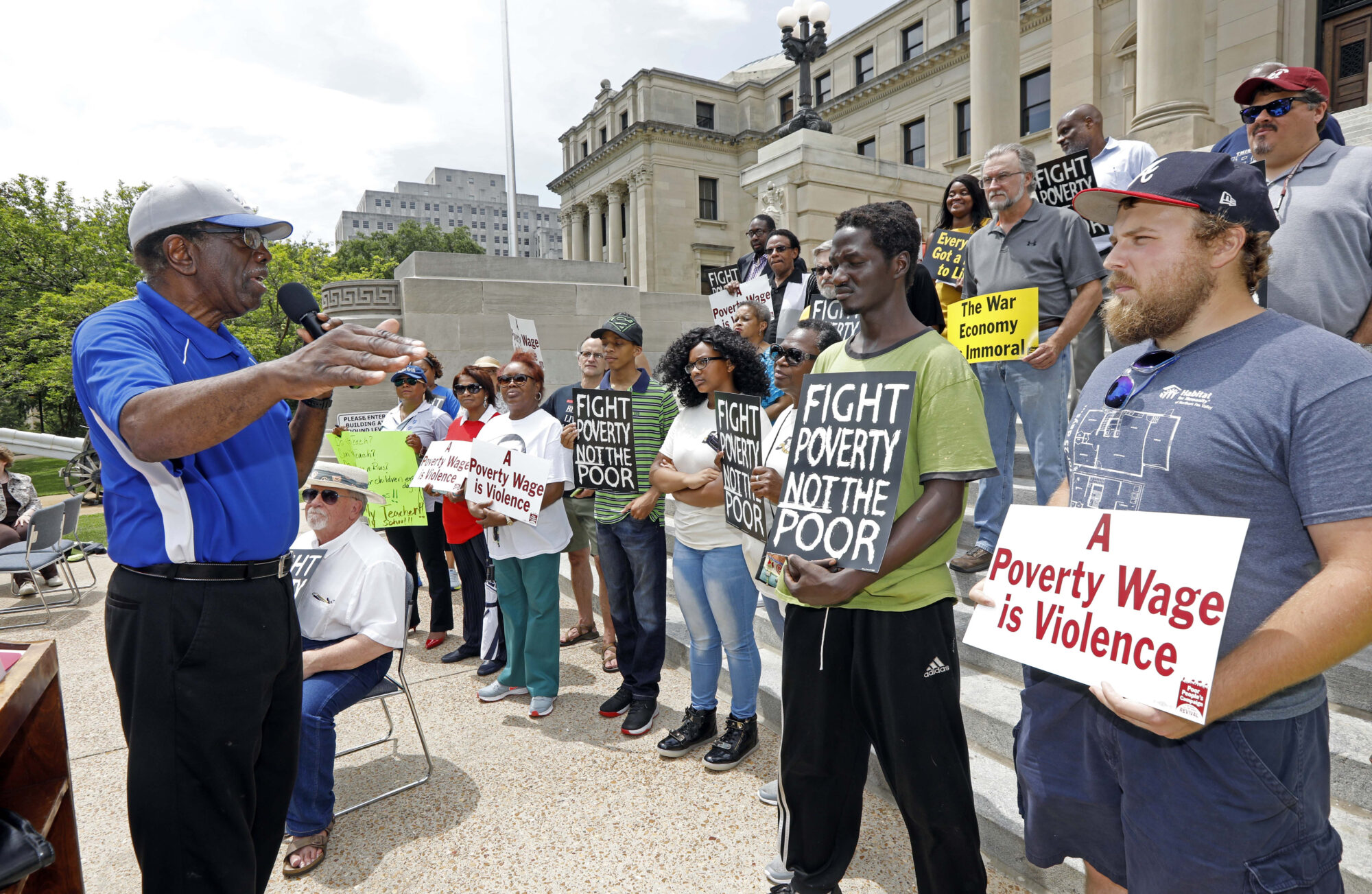
This article first appeared on Mississippi Today and is republished here under a Creative Commons Attribution-NoDerivatives 4.0 International License.
The post Lackey family members show value of education appeared first on mississippitoday.org
Note: The following A.I. based commentary is not part of the original article, reproduced above, but is offered in the hopes that it will promote greater media literacy and critical thinking, by making any potential bias more visible to the reader –Staff Editor.
Political Bias Rating: Center-Left
This article emphasizes the value of education, community service, and overcoming historical racial and economic challenges, themes often highlighted in center-left discourse. It acknowledges systemic issues like underfunding of Black education in Mississippi while focusing on personal achievement and community upliftment without overt political partisanship. The tone is positive and supportive of education as a tool for social mobility, aligning with moderate progressive values but avoiding strong ideological language.
Mississippi Today
This superintendent took a failing Delta school district to a ‘B’ rating. Now, she’s leaving
INDIANOLA — The top of the Jeep was down, and Miskia Davis was behind the wheel, leading a parade through downtown Indianola.
It was 2019, just two years after the now 50-year-old Davis became superintendent of Sunflower County Consolidated School District. Back then, she wasn’t sure this moment would ever come.
She recalled feeling the first cool breeze of October as she waved at people who lined the street, smiling and celebrating.
But it had — the district’s first “C” rating, its first passing grade, and the community had shown up to a parade to celebrate the achievement. Generations of teachers and Sunflower County graduates stood on the sidewalk, proudly cheering the assembly of cars and students.
“It was … Oh my God,” Davis said. “My children were like, ‘We did something.’”
The work hadn’t been easy, but it had been worth it, Davis thought — the number crunching, the doubt and lukewarm welcome she felt from the community, the tough decisions she’d had to make.
Now, she’s ready to move on.
Daughter of the Delta
From starting kindergarten to subbing for elementary classes, Davis’ childhood and career in Sunflower County and her identity as a daughter of the Delta were her strengths in the classroom, she said.
“I grew up in Drew, poor and with two young parents,” Davis said. “We didn’t have elaborate meals, and when I went home, the lights may have been off. But it made me who I am, and these children were experiencing the same things I experienced as a child.”
So Davis was relatable. But as a young high school teacher at Ruleville Central High School, some of her students looked older than her and many were taller than she was. She was forced to learn how to command respect, too.
One particular child taught her an invaluable lesson. He was a star football player in her biology class, and he was failing the course by two points. He caused trouble in class and Davis was determined to fail him, despite more experienced teachers prodding her not to, to look past her own ego.
So Davis gave him another chance. She had him do extra work and spent hours talking to him. She learned why he behaved poorly in class — he was one of seven children to a young, single mother.
“He was angry at the world, and I just happened to be in the world,” she said. “It taught me the power of relationships. I think that’s the most important catalyst in transforming education.”
It was during that time that her superintendent “saw something” in her and pushed her to become a school leader. That kickstarted her journey in administration.

Davis soon learned she had a particular gift for turning failing schools around. Under her leadership as principal, Ruleville Middle School went from failing to an “A” letter grade in three years.
Her school improvement strategy began to take shape, similar to her teaching style. Davis was both a disciplinarian and someone to whom teachers and students could relate. She prioritized building strong relationships with teachers who were invested in their students. But she didn’t shy away from making controversial decisions, either. In Ruleville, she fired nearly all of the staff when she arrived.
But as Davis was gaining her footing as an administrator, Sunflower County School District was struggling.
After consistent failing grades resulted in the state takeovers of Indianola, Sunflower and Drew school districts, the Legislature decided to consolidate the three systems in 2012.
District consolidation is a massive undertaking for any community, but especially for Sunflower County — smack dab in the middle of the Delta, an under-resourced region with a shrinking population, high poverty rates and a deep history of racial exploitation.
Davis arrived in 2014 to a school district that had lost hope — a district that she didn’t recognize.
All Sunflower knew was ‘failure’
Davis never wanted to be superintendent.
She spent three years working under the leader of the consolidated district. But when the superintendent was dismissed in 2017, Davis was appointed to the head role in an interim capacity. She got the job in January of 2018 without ever applying.
So with another state takeover looming, Davis went to work. The biggest challenge? The district and the community seemed resigned to failure.
“We had been failing so long, that’s all we knew,” she said. “No one was even sad.”
Early on, Davis visited a school to discuss recent test results. She was so struck by teachers’ apathy that she stopped the meeting midway and had them tear off a scrap of paper and write “yes” or “no” to a question: Did the teachers believe their school could ever be successful?
More than half said no.
“They were teaching my children,” Davis said, tearing up. “And they didn’t think they would ever be successful.”
Davis went to the school board to tell members that she wouldn’t be renewing many of those teachers’ contracts. That’s when she realized she didn’t just need to boost test scores — she needed to change attitudes.

The hashtag #WINNING was born.
“We started to celebrate every little accomplishment,” Davis said. “We got T-shirts, shades, whatever. That was our mantra.”
Children received certificates for a week of perfect attendance. When students did well on benchmark assessments, teachers were ushered into the hallway to be celebrated by students and colleagues. Davis created the “Killin’ It” awards, given to students and teachers for meeting their testing benchmarks.
They were just certificates, at the end of the day. But it led to a changed school culture, a renewed belief that they could succeed.
As an administrator, Davis leaned on what she knew worked as a teacher, relationship-building and strong discipline (she even sent her nephew to alternative school for fighting), and combined it with a data-driven approach and an eagle-eyed focus on testing.
She put an academic coach in every building, whose sole responsibility was supporting teachers.
Davis took teacher Dylan Jones out of the classroom and put him in the central office, where he was tasked with tracking district metrics.
Jones uncovered which consultants were working and which were uselessly costing the district millions. The district went from contracting with 30 firms to just four.
Jones also created an accountability system for teachers. With one click, Davis could see how each teacher’s students were performing, and she gave everyone access to the data. If teachers weren’t meeting their goals, Davis hosted regular meetings and had them explain — in front of everyone — what they needed to succeed.
Davis’ methods weren’t popular at first. Educators went to the school board and complained that the system was “punitive.” Some even quit. But Davis was steadfast and implored board members to see the work she and her team could do, if given the chance.
The district’s rating didn’t budge in 2018.
But in fall 2019, after Davis’ first full year as superintendent, Sunflower County Consolidated School District had earned its first “C” rating.
What happened after the first ‘C’
Those early years were difficult, Davis remembered, because she felt so isolated, just her and her team “in the trenches.”
She hosted community meetings, imploring local parents, leaders and business owners to support the district.
“They told me to come back when we were no longer failing,” Davis said.
So after that first “C,” when she started seeing the district’s hashtags on Facebook, when more people started coming to school events, when she started to get invited to speak at the local Rotary Club, it was bittersweet.
Teachers, too, took a while to come around. Their performance was being closely monitored through the accountability system, but soon they realized that Davis wasn’t giving them mandates outside of improving test scores. She gave them autonomy in their classrooms. Teachers had the final say on how to improve their students’ achievement. That kind of trust isn’t common, Sunflower County teachers told Mississippi Today.
It wasn’t until 2021, when voters passed a $31 million bond issue that would pay for major school renovations, that Davis felt the full support of the community.
Davis even won over Betty Petty, a local matriarch and fierce advocate for kids and parents.
“She has actually shown a presence at the schools, constantly meeting with teachers and making sure all children are learning,” Petty said. “We had community meetings where she would actually come out and listen to our concerns.”
Petty attended the ribbon-cutting ceremony at Gentry High School last July. Before renovations, plumbing problems caused flooding when it rained, so students had to wade through water to get from class to class. Davis said she’d never forget the sight of generations of Gentry graduates in the school atrium, looking around in wonder at the new facility.
“At first, I chose the community,” Davis said. “But eventually, the community chose me.”

The legacy she leaves behind
Strong schools make strong communities, but it can take time for results to show. Indianola Mayor Ken Featherstone hopes to see the dividends soon.
Featherstone took office four years ago, around the same time the district got its first “B” grade. It has maintained the grade ever since, the highest in the entire region.
He, like Davis, was reared in the Delta, but empathizes with her struggle garnering the support of a community deeply impacted by gun violence and low investment from state officials.

“People are very result-oriented,” he said, leaning back at his desk in city hall. “You till the soil, but it’s not until you start your seed breaking the ground do you see other people starting to water it. That’s just human nature.”
He’s hoping the district’s academic gains will be a boon for Indianola’s struggling economy.
“We’re seeing things slowly come to our area,” Featherstone said. “To get manufacturing jobs to come to our area, we have to improve our public school system. Directors and presidents of manufacturing plants … they need to know where their kids are going to attend school.”
Davis announced in October 2024 that she would be leaving the superintendent job at the end of the school year. Now, she travels the state, consulting with other districts on how to replicate what she did in Indianola, as a director of District and School Performance and Accountability for The Kirkland Group, an education consulting firm based in Ridgeland.
Her departure was a tough blow, Featherstone said, and leaves the district’s hard-fought success hanging in balance.
Petty and her network of parents are concerned, too.
“I don’t think any of us know what will happen moving forward,” she said.
Davis said there was no big epiphany. She just felt her mission was accomplished. She said she’s adamant that the district’s “best days are ahead,” under new superintendent James Johnson-Waldington.
Johnson-Waldington, who was most recently serving as superintendent of Greenwood Leflore Consolidated School District, is also Sunflower-grown, and he was Davis’ principal when she taught at Ruleville Central High School. He plans on employing strategies similar to Davis: holding teachers accountable and celebrating their achievements.
After all, if it’s working, why change it?
“I feel a good kind of pressure,” Johnson-Waldington said. “I like challenges, and this is a new challenge for me. I’m not taking a failing school district to success. This is about maintaining and growing, and I accept that challenge for the very reason that this is home. I’m going to work very hard to maintain what Miskia has done.”
Davis leaves behind a legacy, Featherstone said, that makes her hometown proud. He was in the crowd that day at the parade. He remembers the excitement, the pride.
“Older teachers were there, and you could see the look on their faces that they knew they had reared someone who threw the oar out to a sinking district and brought it back up,” he said.
“She made us see ourselves in a better light, and we can’t thank her enough.”
This article first appeared on Mississippi Today and is republished here under a Creative Commons Attribution-NoDerivatives 4.0 International License.
The post This superintendent took a failing Delta school district to a ‘B’ rating. Now, she’s leaving appeared first on mississippitoday.org
Note: The following A.I. based commentary is not part of the original article, reproduced above, but is offered in the hopes that it will promote greater media literacy and critical thinking, by making any potential bias more visible to the reader –Staff Editor.
Political Bias Rating: Center-Left
This article presents a positive and detailed profile of an educational leader working to improve a struggling school district in a historically under-resourced and economically challenged region. The focus on community uplift, education reform, accountability, and addressing systemic challenges aligns with themes often emphasized by center-left perspectives. However, the article maintains a largely neutral and factual tone without overt political framing or partisan language, emphasizing pragmatic solutions and community collaboration rather than ideological positions.
Mississippi Today
Theology student’s ‘brain drains back home’ despite economics, safety concerns
Editor’s note: This Mississippi Today Ideas essay is published as part of our Brain Drain project, which seeks answers to why Mississippians move out of state. To read more about the project, click here.
Though I imagine I’ll never return, more often than not, my brain drains back to Mississippi. My whole adult life has been a journey up and down the Hudson River, from New York City to the Adirondacks, but inevitably, I find my thoughts leaking toward another river.
I grew up fearing being left behind in the Rapture, but in earnest, it feels like I’m the one who left everyone behind. I’m not proud of this, but I’m certainly not ashamed. I have roots in the Northeast now, and a life that isn’t easily transplanted elsewhere, especially to the Red Clay Hills of Neshoba County. Life took me from Mississippi, and life keeps me away.
I left Mississippi for New York in 2015, and I estimate that I’ve returned only 11 times. My sporadic trips home have been mostly because I’m consistently broke, but now it’s a combination of that and concerns for my safety.
My mother, also limited by finances and Mississippi’s minimum wage, has visited me twice in 10 years, once in the spring of 2016 and then when I graduated from Yale Divinity School in 2023.
I haven’t been back since I came out as a trans woman and began medically transitioning in the winter of 2024. I try not to be overwhelmed with guilt or grief for the imagined, shared life I don’t experience with my mother. Rather, I’ve learned to cherish what we do have.
It’s strange to be who I am, mostly for her but also for me. She has learned to love me regardless of whether or not she understands what I’m doing. In her mind, if you go to college, you become a nurse or a lawyer. You settle down, probably in Jackson, maybe Oxford, most likely in my hometown of Philadelphia, and commute by car more than an hour to work. You probably see your mom weekly. She sees her grandkids as often as possible.
That is not how life turned out. We do talk on the phone. Sometimes we get into once-a-week phone call sprees, other times, I drop off for weeks, maybe a month, when I’m depressed.
When I come home, she picks me up from the airport and drives me back a few weeks later. We crack the windows, smoke cheap Mississippi cigarettes and try to cram 10 years of a strange-to-us mother-daughter relationship into a 90-minute ride to the airport in Jackson. Usually, we talk about suffering, death, sin, God, the end of the world, and what the hell I am doing with my life.
You go to college to get a job, to make more money than your parents and to buy a strange suburban-but-rural McMansion just beyond city limits where you start a family around the age of 25 at the latest.
According to my mother, I went to the University of Mississippi and got brainwashed. She tells me often that it’s like she doesn’t know who I am, and she’s mostly right. She hasn’t met anyone I’ve dated in person since high school. She hasn’t seen me in person since transitioning, and I changed my name to Romy. I explain my relationship with my family to friends, peers, new partners and congregations, always with an articulate sense of heartbreak that I’ve learned to intellectualize and package up in a story of “working-class origins,” single motherhood, a white Christian nationalist rural community and my stumbling through adulthood “refusing not to live by my values.”
I originally left Mississippi to be an AmeriCorps Vista volunteer in the Capital Region of New York. I’d never been there. I took a Greyhound from Memphis to New York City to Albany, New York with two large suitcases and a backpack. Several of my friends from college had moved to New York City, and their couches and shared beds provided a safe launching pad for more of us. I had also fallen in love with a fashion student turned designer that I met on a trip to the city the year prior. Though that romance flamed and flickered for many years and ultimately flamed out, my reason for staying in the North was the life I was increasingly stumbling into.
I went there because, at the time, I had an insatiable desire to live out my values and politics. After all, I was maybe one of two socialist public policy majors at the Trent Lott Leadership Institute at the University of Mississippi, and I didn’t want to be a lawyer, a lobbyist or a policy wonk.
I wanted to be poor and engage in building sustainable autonomous communities. I wanted to learn how to be a person who had no work/life distinction, but a vocation and calling.
Through AmeriCorps, I luckily found a small group of activists, urban homestead types, organizers and ex-social workers living together helping others at the margins and themselves start businesses and worker-cooperatives while struggling through mental health crises, and taking on an impossible but seemingly always plausible dream of a directly democratic community owned, operated and governed only by those who live there.
This was my first “job” out of college. It was my dream come true, and the most difficult thing I’d ever done. I burnt out pretty hard after two years, and probably made somewhere between $25,000 and $30,000 during that whole time. Since then, the most I’ve made in a year is my current PhD stipend of about $34,000.
I was, however, helped along by friends, colleagues and the activist communities that I was stumbling into. Through them, I was encouraged to go to Union Theological Seminary, land a job at a prestigious artist residency in the mountains, go to Yale Divinity School, discern that I was called to be a priest and come to know myself as a trans woman.
My life outside of Mississippi has been sustained solely by relationships that transgress the boundaries between work and life, co-workers and friends. I regularly reflect on and often worry about how fragile this all is, and if my own vocational and intellectual pursuits have been worth what I’ve left behind or never had.
I’m not sure I’ll ever know. However, I’ve managed to find profound meaning in it all so far, and it keeps me digging myself into this hole in which I will hopefully find what I am looking for, or dig my own damn grave.
Originally from Philadelphia, Romy Felder (she/her) is currently a PhD student at Union Theological Seminary. She is also pursuing the priesthood in the Episcopal Diocese of New York. She has a background in worker-cooperative development, community organizing, popular education and arts management. Romy lives cavalierly but contentedly in Brooklyn, New York.
This article first appeared on Mississippi Today and is republished here under a Creative Commons Attribution-NoDerivatives 4.0 International License.
The post Theology student's 'brain drains back home' despite economics, safety concerns appeared first on mississippitoday.org
Note: The following A.I. based commentary is not part of the original article, reproduced above, but is offered in the hopes that it will promote greater media literacy and critical thinking, by making any potential bias more visible to the reader –Staff Editor.
Political Bias Rating: Left-Leaning
This essay reflects a distinctly personal and ideological perspective rather than neutral reporting. The author frames Mississippi as economically limiting and socially unsafe, particularly for marginalized identities such as transgender individuals, while presenting Northern activist and academic communities in a sympathetic and aspirational light. References to socialism, worker-cooperatives, and critiques of conservative Mississippi culture suggest a worldview aligned with progressive or left-leaning politics. The tone is introspective and critical of traditional Southern expectations, while valorizing alternative, activist-driven lifestyles. As such, the piece is less about balanced reporting and more an expression of lived experience through a progressive lens.
-
News from the South - Florida News Feed6 days ago
Floridians lose tens of millions to romance scams
-
News from the South - Texas News Feed6 days ago
New Texas laws go into effect as school year starts
-
News from the South - Kentucky News Feed7 days ago
AmeriCorps is under siege. What happens in the communities it serves?
-
News from the South - West Virginia News Feed6 days ago
Religious exemption debate front and center amid new school year in WV
-
News from the South - Alabama News Feed6 days ago
Final steel girders placed on new Gulf Shores bridge, completion on track
-
News from the South - Arkansas News Feed6 days ago
Trump, Zelenskyy exit White House talks hopeful about security guarantee for Ukraine
-
News from the South - Alabama News Feed6 days ago
Despite federal shift, state health officials encourage COVID vaccines for pregnant women
-
News from the South - Tennessee News Feed7 days ago
Son hopes to get emergency visa following mother's death in East Tennessee
